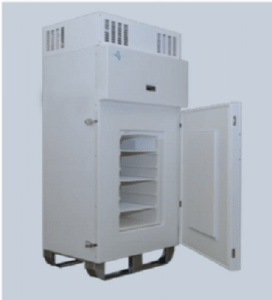
Agriculture
February 21, 2024
Sure Chill Vaccine Refrigerator BLF100 DC
Read SolutionImplemented by
Sure Chill
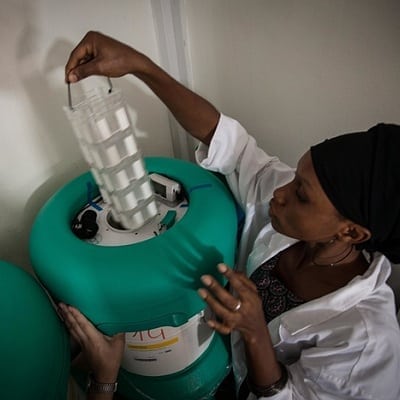
Updated on February 20, 2024
·Created on August 27, 2015
The Arktek Passive Vaccine Storage Device is a vaccine storage device that can store up to 5 L of vaccines for over 35 days without the need of an external power supply.
The Arktek PSD, a passive storage device, is designed to keep vaccines at appropriate temperatures for a month or more with repeat vaccine retrievals and no need for electricity. It is easily implemented with no need for capitol improvements and has no complex parts to maintain or install. Using a single load of ice blocks for thermal energy storage, the Arktek PSD maintains EPI standard temperatures (0~10°C) for up to 5 liters of vaccines for a minimum 35 days in 43°C day time ambient temperatures. With monthly supplied ice blocks, the Arktek PSD can support vaccination services for a community of approximately 6,000 people. The Arktek PSD is helping to extend vaccination services in remote health posts lacking reliable grid power. This ruggedized vaccine carrier can store up to 300 vaccine doses for over a month. The carrier uses vacuum-insulated technology that allows repeat retrievals and includes a monitor that tracks location using GPS, internal temperature, and the number of retrievals, then transmits this information through USB connection or over SMS messaging.
Target SDGs
SDG 3: Good Health and Well-Being
Market Suggested Retail Price
$2,400.00
Target Users (Target Impact Group)
Small and Medium-sized Enterprises, Public Sector Agencies, NGOs
Distributors / Implementing Organizations
Global Good (collaboration between Intellectual Ventures and Bill & Melinda Gates Foundation), AUCMA is moving Arktek into distribution in the communities with the lowest rates of vaccination.
Countries
Ethiopia, Fiji, Ghana, Haiti, Liberia, Mozambique, Nepal, Nigeria, Pakistan, Senegal, Sierra Leone
Manufacturing/Building Method
Manufacturing is in progress with AUCMA, a Chinese refrigeration company
Intellectural Property Type
Patent
User Provision Model
Distributed to healthcare workers directly through large-scale projects with agencies such as WHO. The product may also be purchased from Via Global Health.
Distributions to Date Status
As of 2017, over 500 devices have been distributed.
Gross storage capacity (L)
5
Holding Temp (°C)
0-10; +/- 0.2
Holdover Time (days)
35 +
Number of Shelves
N/A
Power Requirements
None
Vaccine storage capacity (Liters)
5
Design Specifications
Using a single load of ice blocks for thermal energy storage, the Arktek PSD maintains EPI standard temperatures for up to 5 liters of vaccines for a minimum 35 days in 43°C day time ambient temperatures. Contains 8.6 liters of water ice. Arktek’s tested thermal heat leak is an average of 1 Watt per day with a day/night cycle of 43°/25°C.
The two ice blocks are first stacked against the inner walls and then the vaccine carrier cups are placed in the middle. The device is equipped with temperature sensors that will alert the user if the temperatures inside reach an unsafe range.
The product dimensions are 52.8 x 74.7 cm. The product weight when empty is 22 kg and when full is 39.5 kg. More information can be found in the product manual.
Technical Support
Technical support is provided by the manufacturer or its designated service agents. A maintenance manual is also provided.
Replacement Components
The manufacturer, AUCMA, will provide parts in case of any repair needs. Interview with designer, July 2015
Lifecycle
The economic analysis of this device considers initial cost, as well as cost over 10 years, the estimated lifetime of the device.
Manufacturer Specified Performance Parameters
Stores up to 300 doses
Requires no electricity, holds vaccines at safe temperature for for 30 to 60 days, depending on outside temperatures and humidity with repeat vaccine retrievals, transportable, low-maintenance.
Vetted Performance Status
Field testing was performed in Senegal and in Ethiopia in 2014. The testing in Senegal showed that the device meets the WHO temperature standards for vaccine storage with no need for an external power source, internal temperatures were successfully maintained for 35 days in all use cases, the device fit well within the current vaccine logistic systems, and received positive user feedback. The testing in Ethiopia showed that again the device was able to maintain a safe internal temperature range for 35 days in different use cases and it received positive user feedback.
Safety
The device is designed to only store vaccines, some parts may be flammable (nylon ropes), keep device away from acid, alkali, and other corrosive substances, only authorized personnel may perform maintenance on the device. For further safety considerations, refer to the user manual.
Complementary Technical Systems
A single-use battery to supply power to the sensors must be installed.
Academic Research and References
Normana Bryan A., et al. A passive cold storage device economic model to evaluate selected immunization location scenarios. Elsevier: Vaccine. [Internet] 2013 [cited 2015 June 2]; (31): 5232-5238.
Intellectual Ventures, “Forward-looking Partner in China“, 2013
AUCMA Global, “ARKTEK Product Manual”, 2015
VIA Global, “ARKTEK Manteinance Manual”, 2015
Compliance with regulations
WHO Pre-Qualified under Devices and Equipment category for PQS (Performance, Quality, and Safety). The device is also certified under ISO 9001. Field trials were conducted in collaboration with the Ministries of Health in Senegal, Nigeria, and Ethiopia.
Evaluation methods
World Health Organization’s (WHO) parameters for safe vaccine delivery
Other Information
Received a Patents for Humanity Award in 2016.

Agriculture
February 21, 2024
Implemented by
Sure Chill
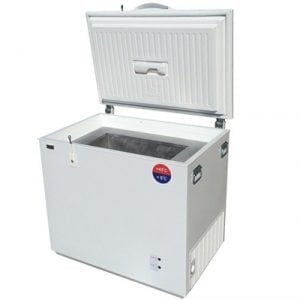
Agriculture
February 21, 2024
Implemented by
SunDanzer

Agriculture
June 29, 2024
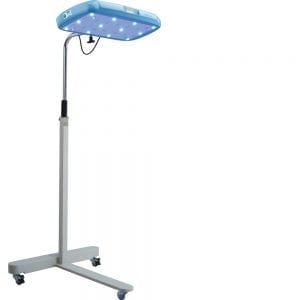
Agriculture
February 21, 2024
Implemented by
Equalize Health

Agriculture
March 10, 2024
Implemented by
Disease Diagnostic Group
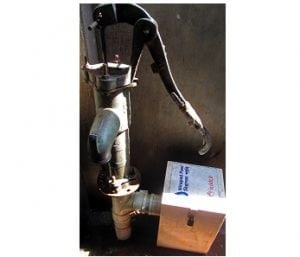
Agriculture
January 3, 2024
Implemented by
Stanford Researchers and the International Centre for Diarrhoeal Disease Research, Bangladesh
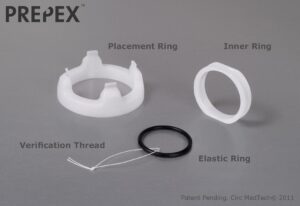
Agriculture
February 5, 2024
Implemented by
Circ MedTech
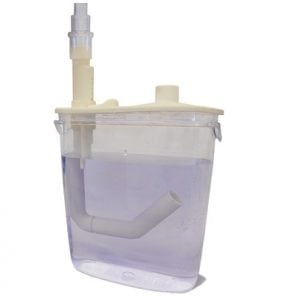
Agriculture
November 22, 2023
Implemented by
The NeoRest team at the Seattle Children’s Hopsital
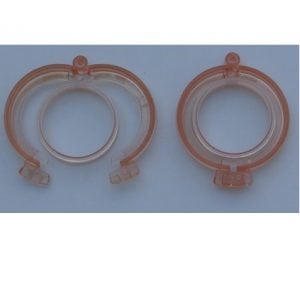
Agriculture
February 29, 2024
Implemented by
Jian Zhong Shang
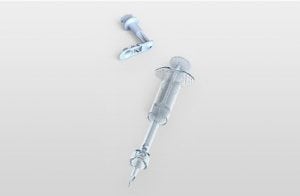
Agriculture
December 19, 2023
Implemented by
Star Syringe
Have thoughts on how we can improve?
Give Us Feedback
Steve Harston says:
I believe that more of these categories should be able to be filled out if the product is “being readied for field evaluation” as stated under the tab “Manufacturing & Delivery”. While the final details may not yet be known, if they are doing a field study they should have at least have preliminary numbers on “Gross Storage Capacity”, “Holdover Time”, and “Vaccine Storage Capacity”. As the product is finalized, the numbers presented here can be modified to reflect these changes. Specifically with “Holdover Time”, even if they haven’t done detailed testing, it would be very beneficial to provide results from their preliminary testing but they should also comment that the results are preliminary.
From my perspective the information provided under “Power Requirements” is not addressing the question that is being asked. They don’t state if it is intended to be plugged in most of the time, power consumption How is this intended to be used? Temporary no power? Solar driven? Information on the solar panel size could also help users better understand the power requirements of their product.
I interpret the “Safety” category differently than the owners of this product did. I don’t know which is correct but I interpret it as what are the hazards of using the device. For example, if caustic Phase Change Material is used in their ice packs or if high voltage is required to run their system than these should be called out here.
I believe that this device is not dependent on electricity to run, avoiding high electricity costs, and does not require additional power generation equipment, providing a solution for vaccination in areas without grid support. However, this device requires a monthly ice supply, which places certain demands on the logistics system. However, in remote areas, especially in mountainous regions, the logistics system is often inadequate, which may lead to an untimely supply of ice and affect the normal operation of the equipment.